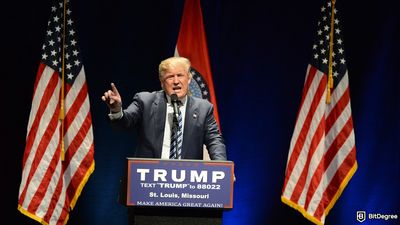Mark Cuban and John Reed Stark once again lock horns over crypto regulations in the US.
The Shark Tank star and billionaire entrepreneur Mark Cuban and ex-securities official John Reed Stark took to Twitter to argue over the factors leading to the demise of the crypto exchange FTX.
In a heated debate, Cuban insisted that clear regulations set by the United States Securities and Exchange Commission (SEC) could have prevented any financial losses from FTX's collapse.

Did you know?
Want to get smarter & wealthier with crypto?
Subscribe - We publish new crypto explainer videos every week!
What is Polygon in Crypto? (Animated Explainer)


Cuban strengthened his stance by pointing to Japanese regulators, as an exemplar of successful regulation. He noted:
When FTX crashed, NO ONE IN FTX JAPAN LOST MONEY.
Stark, a known cryptocurrency skeptic, challenged Cuban's viewpoint, arguing that blaming the SEC for the downfall of FTX, BlockFi, Celsius, Terra, and Voyager seems like an overreach, labeling these firms as “dumpster fires.”
While Stark conceded that the SEC might not always be accurate, he insisted that the agency has saved investors "millions, perhaps even billions" in potential crypto losses. Stark also argued that the crypto industry demands regulatory clarity yet reacts to new rules with objections, often leading to a “flashy legal challenge to its enactment.”
On the other hand, Cuban posited that the "best way" to guard against cryptocurrency fraud is to implement "brightline investor protection regulations." Cuban stated:
Anyone who doesn't register is de-facto in violation, can't operate and will be shut down. That's how you protect crypto investors.
Contrary to Cuban's stance, Stark claimed that the SEC only pursued charges against firms like Binance or Coinbase after explicitly communicating their non-compliance. Stark stated:
<These firms> opted to ignore the SEC — and reap profits for as long as possible without registering.
This argument marks the second time in less than a month that the duo has sparred over cryptocurrency regulation strategies. Cuban previously criticized the SEC for allegedly failing to provide a straightforward registration procedure for cryptocurrency firms.
The Cuban-Stark showdown illuminates the ongoing debate over how the rapidly growing cryptocurrency sector should be regulated. The contrasting viewpoints highlight the need for a balanced approach that safeguards investor interests while supporting technological innovation.






















